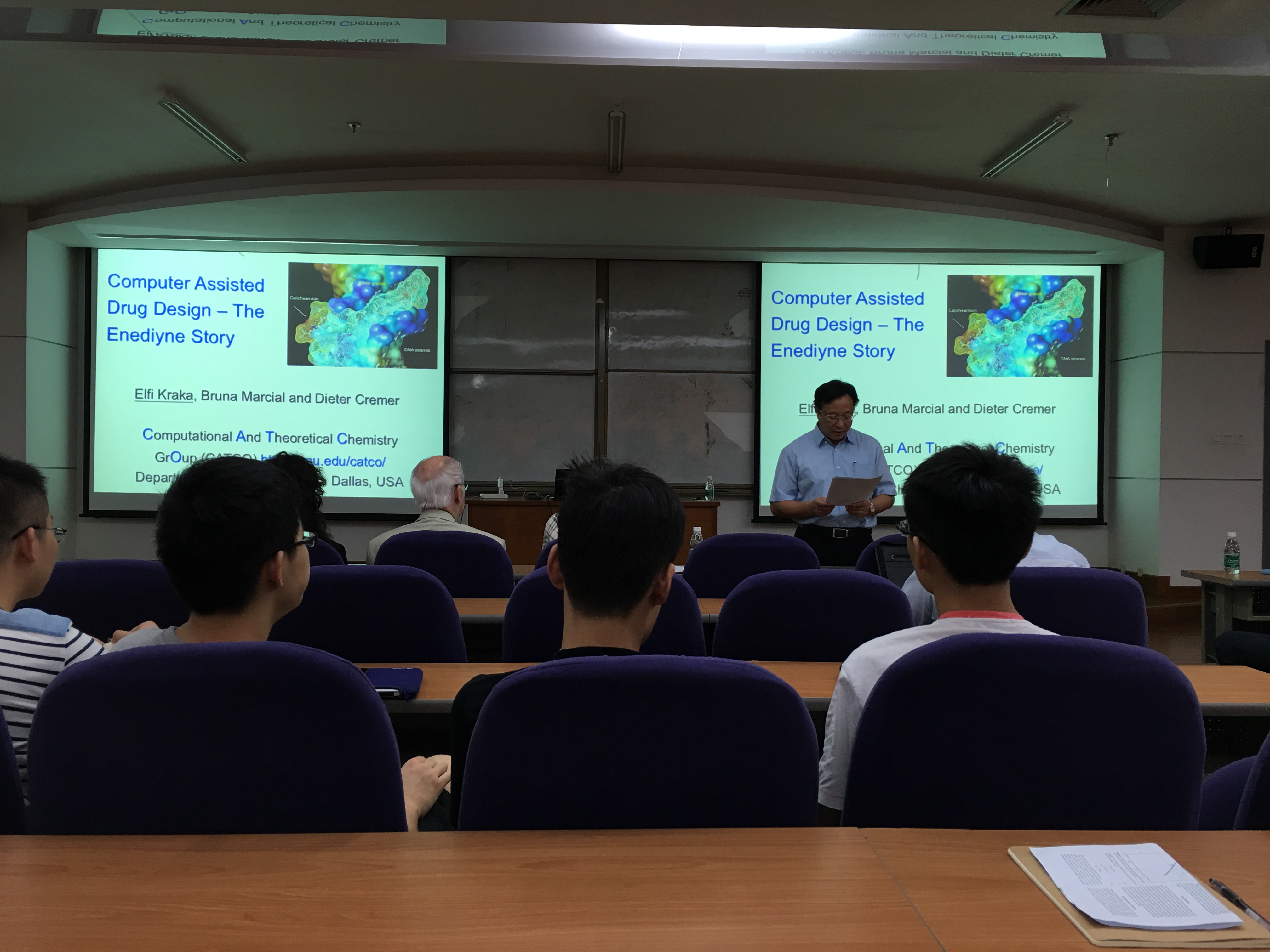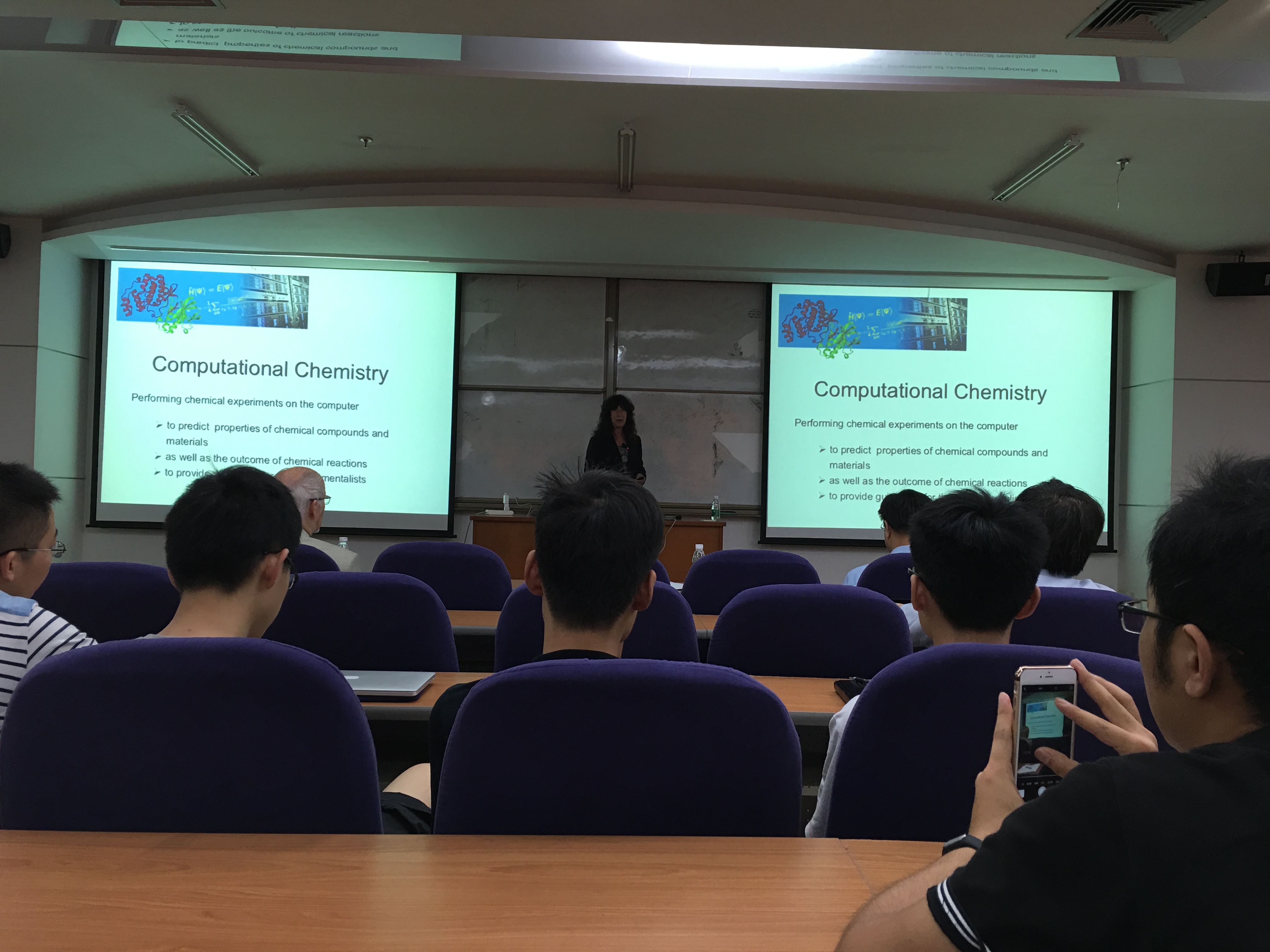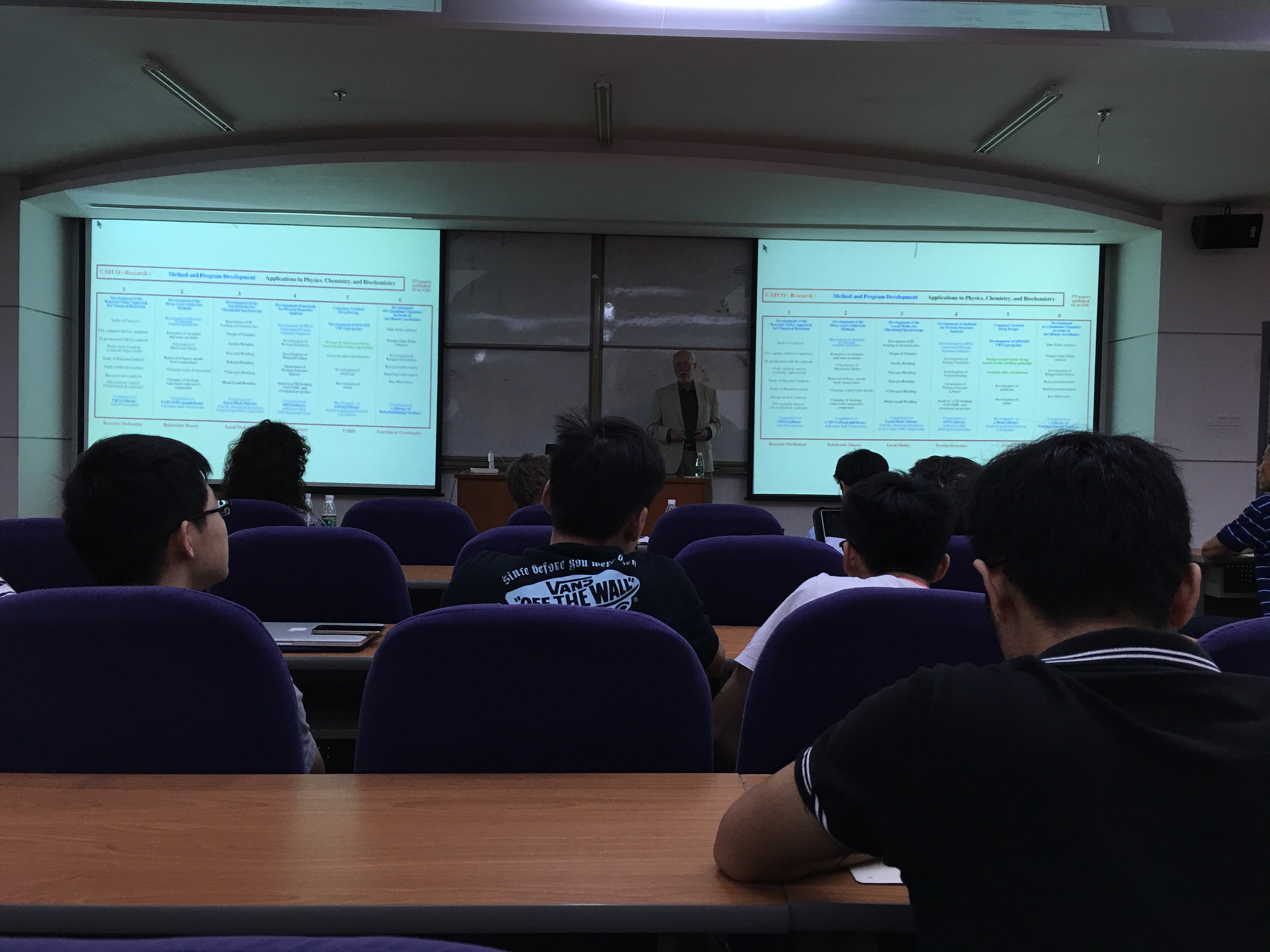On May 23, 2016, with the invitation of Prof. Wu Yun-Dong, Prof. Elfi Kraka and Prof. Dieter Cremer from Department of Chemistry, Southern Methodist University visited our school and some of our labs. Then they made brilliant lectures named “Computer Assisted Drug Design – The Enediyne Story” and “Investigation of Protein Structure with Quantum Chemical Methods: Hydrogen-bonding and Protein Similarity” respectively. Besides, they had a discussion lunch with some of the students in our school.

Prof. Elfi Kraka firstly introduced some of the basic concepts and developments in computational chemistry and pointed out that computational chemistry has already been an important branch in chemistry. Computer Assisted Drug Design (CADD), which makes ample use of computational modeling, can lead to a substantial reduction of cost and time for the development of a new drug. enediyne-principle was developed by nature in billions of years. It is based on the ability of naturally occurring enediynes to destroy the DNA of toxic bacteria and viruses. Attempts to use the enediyne-principle as a basis for an anticancer drug have failed because the naturally occurring enediynes cannot differentiate between tumor and normal cells and, therefore, they are highly toxic. Using CADD, they first investigated the biological activity of naturally occurring enediynes and then introduced modifications of the enediyne 'warhead' with the objective of making it target-specific. This study set the stage for the development and utility of the enediyne-type anticancer drugs.

Then Prof. Dieter Cremer described the rapid recognition of protein structure at the secondary and tertiary level using Frenet frames. In this way, a precise distinction of structural units becomes possible. Also, structural similarity between different proteins can be quantified, which simplifies the analysis of protein structures obtained by quantum chemical structure optimizations. H-bonds play an important role for stabilizing a given protein structure. The nature of the H-bonds can be assessed by NMR spectroscopy and/or vibrational spectroscopy using in the first case indirect spin-spin coupling constants and in the second case local vibrational modes. With the help of these tools the electronic character of H-bonding can be established. This is demonstrated for a number of examples. (Written by Tonghuan Zhang & Songbai Wu)

Prof. Elfi Kraka is Full Professor and Chair of the Department of Chemistry at Southern Methodist University, Dallas since 2009. She received her Dr. rer. nat. in Theoretical Chemistry at the University of Cologne, Germany in 1985 with summa cum laude. After a 2-year postdoctoral stay at Argonne National Laboratory, Chicago, she became Assistant Professor of Theoretical Chemistry at Göteborg University, Sweden in 1990, Associate Professor of Theoretical Chemistry in 1993, and Full Professor of Theoretical Chemistry in 1997. 2005-2009, she was Full Professor and Chair of Chemistry at the University of the Pacific, Stockton, CA, USA. Her research is widely extended to many areas in computational chemistry. She has published more than 160 peer-refereed articles in high-ranking journals and presented her research at about 100 international conferences. She is a member of the Scientific Board of the World Association of Theoretical and Computational Chemists (WATOC), since 2005, a member of the Editorial Board of the Journal of Computational Chemistry, and a member of the Editorial Board of the International Journal of Quantum Chemistry.
Prof. Dieter Cremer is now the Director of the Computational and Theoretical Chemistry Group (CATCO), G. Ford Research Professor, and Full Professor of Chemistry at Southern Methodist University (SMU), Dallas, Texas, USA, is an internationally recognized leader in the field of Quantum Chemistry. He graduated in Organic Chemistry and NMR spectroscopy at the University of Köln, Germany, worked as a postdoctoral associate with Nobel Laureate John Pople at Carnegie-Mellon University, Pittsburgh, USA in the years 1972 – 1975, became Associate Professor (University of Köln, 1978), Heisenberg Professor (University of Köln, 1983), and Full Professor and Head of the computational chemistry group at the University of Gothenburg, Sweden, in 1990. His research ranges from the development of state-of-the-art relativistic methods and computer programs to the investigation of transition metal catalysts and the investigation of homogeneous catalysis reactions. His recent work focuses on chelating organic molecules that can precipitate toxic metals such as lead, cadmium and mercury from industrial wastewaters. He has published more than 380 peer-reviewed research articles in high-ranking journals, more than 70 of which he published since joining the Southern Methodist University in 2010. Dieter Cremer has presented his research at nearly 200 international conferences, and 19 of the more than 60 graduate and postgraduate students he has supervised have become professors at universities in seven different countries around the world.